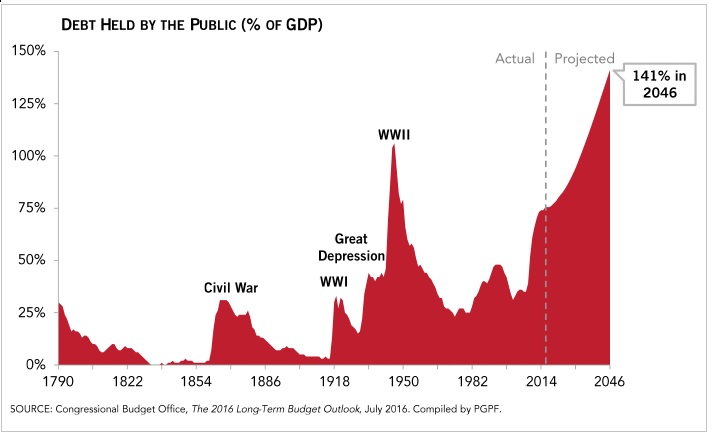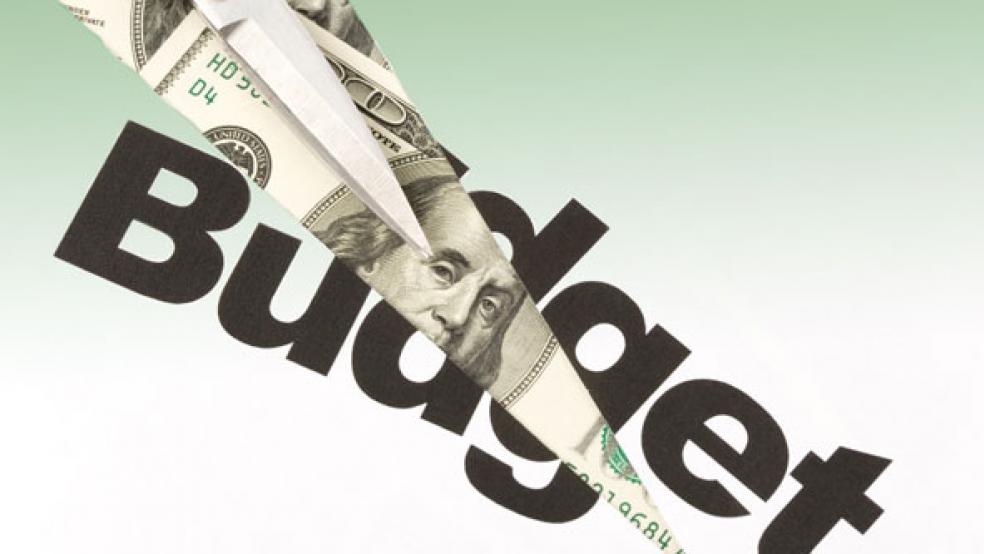President Donald Trump’s choice to head the Office of Management and Budget (OMB) declared on Tuesday that the government must address the nearly $20 trillion national debt in the short term by making “fundamental changes” in the way Washington spends and taxes.
During a confirmation hearing before the Senate Budget Committee, Rep. Mick Mulvaney (R-SC) foreshadowed the Trump administration’s drive to eliminate waste, fraud, and duplication of effort in government and scale back the size of the federal workforce. He made this pledge even while Trump presses for new spending on defense and infrastructure and major tax cuts that analysts warn would further drive up the debt.
Related: How the Senate Could Stop Trump's Drive to Slash Federal Spending
“I believe, as a matter of principle, that the debt is a problem that must be addressed sooner, rather than later,” Mulvaney, a leader of the conservative House Freedom Caucus and a sharp critic of government spending, said in his opening remarks. “I also know that fundamental changes are needed in the way Washington spends and taxes if we truly want a healthy economy. This must include changing our government’s long-term fiscal path – which is unsustainable.”
Mulvaney also testified that he would support raising the retirement age in order to save Medicare and Social Security for future generations.
Mulvaney’s hearing coincided with the release of the Congressional Budget Office’s revised ten-year budget and economic outlook showing the government still on track for historic surges in the federal debt, even while the fiscal 2017 deficit picture has brightened somewhat since last August.
CBO’s latest deficit projection for fiscal 2017 is $559 billion, or $35 billion less than the previous estimate -- but still $28 billion more than the government’s revenue shortfall in fiscal 2016.
Last year was the first time the budget deficit rose since 2009 – an ominous signal to lawmakers and policy experts that the government was once again on the road to massive $1 trillion a year deficits that were common during the worst of the Great Recession.
As annual revenue deficits pile up in the coming years, publicly held debt will rise from 77 percent of gross domestic product by the end of 2017 to 89 percent of the overall economy by 2027. In dollar terms, publicly held debt will increase from $14.8 trillion at the end of this year to $24.9 trillion by 2027, according to CBO’s baseline analysis.
Related: CBO Says Deficit on the Rise for the First Time Since 2009
Publicly held debt is the sum total of the government’s borrowing to meet its obligations in a timely fashion, while the gross national debt – now closing in on $20 trillion – includes both the publicly held debt and internal government borrowing by agencies and trust funds like Social Security and Medicare.
“Our gross national debt has increased to almost $20 trillion,” Mulvaney said today. “That number is so large as to defy description.”
While the national debt draws most of the attention and is viewed as the ultimate symbol of government waste and spending excesses, the CBO warns that the steadily mounting publicly held debt poses long-term threats to the economy and the government’s ability to react to crises or unexpected expenses.
Annual deficits or revenue shortfalls are largely driven by mounting defense and domestic spending programs and entitlements for the elderly and low-income Americans. According to CBO’s latest projections, budget deficits will remain below three percent of GDP through 2019, but then begin to climb dramatically – driven by spending on Social Security, Medicare for seniors and net interest costs on the debt.
Related: Big Deficits Loom as Candidates Pile on Spending and Tax Cuts
By 2027, the deficit will reach five percent of GDP, or $1.4 trillion, absent any change in government policies to address the long-term deficit.
Maya MacGuineas, president of the Committee for a Responsible Federal Budget, a fiscal watchdog group, issued a statement describing the latest CBO report as a “dangerous debt picture for the United States.”

MacGuineas and other deficit hawks have warned that Trump’s agenda of major spending hikes combined with hefty tax cuts for individuals and corporations will greatly add to the country’s long-term debt woes. Her group has estimated that Trump’s plans, when taken together, would increase the debt by $5.3 trillion over the coming decade. Her group did not score Trump’s impact “dynamically,” meaning Trump’s plans to reduce government spending are not accounted for in this estimate.
Trump and his economic team, including Mulvaney, argue that the administration’s spending and fiscal policies, including the tax cut, will turbocharge the economy and more than offset any revenue shortfalls in the long term. “Fixing the economy doesn’t mean just taking a green eyeshade approach to the Budget,” Mulvaney said today. “Our government isn’t just about numbers. A strong, healthy economy allows us to protect our most vulnerable.”
But MacGuineas said, “Policymakers should not go into debt denial with hopes that unrealistic growth and rosy projections will save the day. Ignoring these fiscal facts is like ignoring a coming storm. Our nation will be drowning under red ink if policymakers do not reverse course now.”
Beyond budget and deficit matters, Mulvaney was grilled today by Democrats for failing to pay more than $15,000 in payroll taxes for a babysitter who worked for the family for four years.
Mulvaney said that he and his wife “made a mistake” because they didn’t consider the babysitter – who helped in caring for their triplets -- a household employee. He said he didn’t realize that he should have paid taxes on her until he was preparing for the nominating process. Since then, he has paid the taxes.





